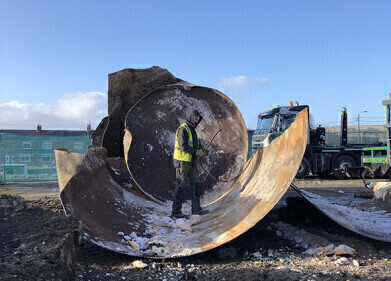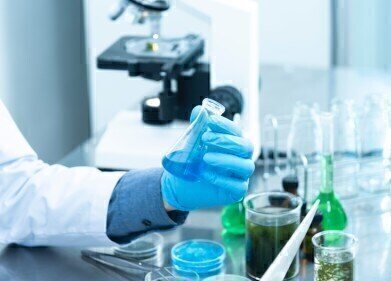Soil remediation
Nanomaterials in Fertiliser Products could Threaten Soil Health
Apr 26 2013
Nanomaterials added to soil via fertilisers and treated sewage waste used to fertilise fields could threaten soil health necessary to keep land productive, says a new report released recently by the Institute for Agriculture and Trade Policy (USA). Peer-reviewed scientific research also indicates possible negative impacts of nano-fertilisers on public health and the food supply.
The Institute for Agriculture and Trade Policy's (IATP) report, Nanomaterials in Soil: Our Future Food Chain?, draws attention to the delicate soil food chain, including microbes and microfauna, that enable plant growth and produce new soil. Laboratory experiments have indicated that sub-molecular nanoparticles could damage beneficial soil microbes and the digestive systems of earthworms, essential engineers in maintaining soil health.
Nanomaterials are advertised as a component of market-available fertilisers—designed to increase the effectiveness of fertilisers by making them the same size as plant and root pores—but because nanotechnology is an unregulated global industry, there is no pre-market safety assessment. Several researchers assume that nanomaterials are increasingly present in biosolids (also known as sewage sludge) used as fertiliser on about 60 percent of U.S. agricultural land.
“In light of published research, the Obama administration should institute an immediate moratorium on fertilising with biosolids from sewage treatment plants near nanomaterial fabrication facilities. A moratorium would give researchers time to determine whether nanomaterials in soil can be made safe and to research alternatives to building soil health, rather than depending on fertilisation with biosolids.” says IATP’s Dr. Steve Suppan.
Over time, the report explains, nanomaterials in these agricultural inputs can accumulate and harm soil health. More research is urgently needed to adequately understand possible long-term impacts of nanotechnology.
“As agri-nanotechnology rapidly enters the market, can soil health and everything that depends on it be sustained without regulation?” asks Suppan. “That’s the question regulators, researchers and anyone involved in our food system should be asking themselves.”
The report also details risks specific to farmers and farmworkers applying dried biosolids that incorporate nanomaterials, including inflammation of the lungs, fibrosis and other toxicological impacts.
With no regulatory system in place—in the U.S. or elsewhere—for producing, and selling nano-fertilisers, IATP’s report concludes by asking for governments to require robust technology assessments involving biological engineers, soil scientists, public health professionals, farmers and concerned citizens before allowing indiscriminate application by industry.
Events
Apr 08 2025 Targi Kielce, Poland
Apr 08 2025 Bahrain
Apr 10 2025 Beijing, China
Apr 10 2025 Beijing, China
Apr 15 2025 Moscow, Russia














